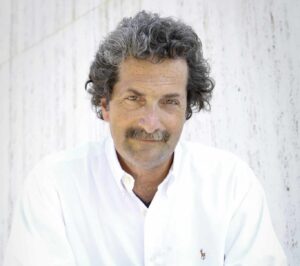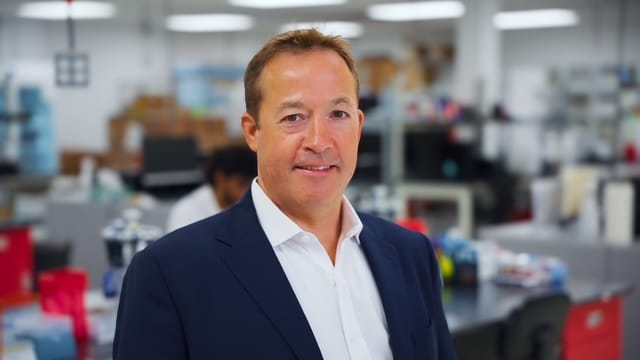One challenge is that current laws and health coaching regulations haven’t kept pace with the growth of the industry. With the floor continually shifting under our feet, how do health coaches minimize risk and stay grounded in their scope of practice?

Dr. Sandra Scheinbaum recently sat down with Peter Hoppenfeld, FMCA attorney and expert on law in the health and wellness space, to break down the scope of practice questions and set the record straight on what coaches need to know to keep themselves and their clients safe.
Here are some of the highlights of their conversation:
What Your Functional Medicine Health Coach Certification (FMCHC) Means:
First, an important distinction exists between holding a certificate or certification – and being licensed – in a particular field or profession.
Health Coach certification from Functional Medicine Coaching Academy means that we certify your knowledge and proficiency in the coursework and material. Still, it does not necessarily mean that you are eligible to apply your skills as a functional medicine certified health coach in a given location.
In other words, holding an FMCHC certificate or certification does not imply that you may practice coaching where you live, nor does it override any local regulations that may limit your scope of practice. In this way, your certificate is different from a license or a diploma that permits you to practice your skills; it is instead a verification that you have mastered your coursework.
In general, varying and inconsistent levels of regulation exist around the health and wellness space. In the US, for example, there are federal regulations on working in health and wellness fields, as well as state and local regulations that may be more or less strict, depending on where you live. And it’s on each coach to make sure you work within the regulations that apply to you.
“It’s up to you to determine what you can legally do in your home state, city, or town to people in their city, state, or town,” Peter says. To learn about how your scope of practice may be impacted by regulations where you practice, review your federal, state, and local laws on health coaching.
Wearing Many Hats
Many alumni combine their Functional Medicine Academy Health Coach training with other programs, training, and credentials. These coaches have the extra consideration of understanding the legal distinction between their work as a coach and their work in other functions. Depending on the regulations where you live, your practice as a nurse or social worker, for example, may look very different from your practice as a coach. Even the words you use to refer to the population with whom your work may need to shift (e.g., someone who is your “patient” when you’re their nurse should be called “client” when you’re their coach). As you set expectations with new clients on what your working relationship will look like, you may make these distinctions official through consent forms and other documents.
Given the newness of the field of health coaching and the lack of regulation of its practice, there is always some risk associated with practicing. “If, god forbid, someone gets sick,” Peter cautions, “you could be sure that they will try to punch a hole in the differentiation of somebody being a doctor or a coach.” So if you’re combining health coaching with another credential, check to ensure that your malpractice insurance covers the activities in which you’re engaging. Again, this varies depending on where you live, so be sure to do a thorough investigation of what you are and aren’t allowed to do to ensure that you and your clients are safe.
Telecoaching
One of the more complicated areas to understand scope of practice, telecoaching is still new and as yet is under-regulated. One of the main challenges of navigating virtual coaching from a legal standpoint is that it’s happening in two places at once: where the coach is and where the client is. Which area’s regulations should the coach follow?
Since many of us offer remote coaching services, a good rule of thumb is to make sure you’re knowledgeable about any telecoaching regulations both in the area where you practice and where your clients live. In this way, you can ensure that you’re within regulations anywhere you could be considered a coach. These rules are often poorly defined, so be sure to do your homework. Unfortunately, there’s no clear or easy answer.
Understanding Which Regulations Apply
Some confusion exists about local regulations, especially understanding which regulations a coach is subject to. Where you live, where you coach, where your client lives, the address where you bill – which is it? The short answer is: comply with everything. Peter cautions seriously against overstepping the boundaries, legal or otherwise, because the worst-case scenario-a client getting sick or dying, and their coach being found at fault-is not worth the risk.
You’ve likely seen health coaches working outside their scope of practice. It may even feel like they have a competitive advantage when they interpret labs or call themselves “practitioners.” This is a risky approach, and it’s the result of how other coach training programs don’t emphasize the importance of the scope of practice. Coaches who work outside their scope of practice do so to the detriment of our field, which will likely lead to mistakes, followed by more stringent regulations.
Peter predicts that a health coaching regulatory “shake-up” is coming, which he anticipates will further clarify the coach’s scope of practice and regulate the “diploma mills” and “bad egg” training programs that blur the lines between coach and practitioner. In the meantime, it’s best to take a conservative approach. “Coaching is coaching,” he says. “Coaching is not prescribing; it’s not treating…If you want to do more than that, go to medical school.”
Doing Your Homework: Where To Start
Between federal, state, and local regulations across multiple regions, there is a lot to be aware of. Where should coaches start? Unfortunately, there isn’t a single, convenient hub for all this information. Start with your favorite search engine and look for information on credentialing requirements in your state or local area. You may want to contact your local licensing medical professional authority or medical society, e.g., the Department of Professional Regulations (the name varies from state to state), as well.
As you learn about regulations, it may be helpful to have a vision of what exactly you want to do with your certificate. Are you interested in working in a larger practice? Telecoaching independently? Combining your FMCHC training with a previous credential or career? How you plan to use your training will impact the guidelines that apply to you. A basic question you can ask your local licensing official is, “I took this course with FMCA, and X is what I want to do with my training. Do I need any other licenses or certifications in order to practice here?”
Why Doesn’t FMCA Monitor All Regulations?
As an online certification program serving an international student and alumni community, it isn’t feasible for FMCA to monitor the ever-changing health coaching regulations unique to each country, state, and local area where our students live, where they coach, and where their clients are located.
Given the decentralization of most regulations, the speed and frequency with which they change, and the varying activities that alumni engage in with their credentials, FMCA, unfortunately, cannot maintain a database or list of regulations that would be useful to our community.
As Peter notes, “It is the obligation of professionals, practitioners, people in the workforce with professions, who have completed this course, to keep track of what they can and can’t do.”
The Bottom Line
Peter says what coaches need to remember is simple; we are here to serve our clients.
“Ultimately…these are real people we are helping. We don’t want to hurt anyone. We need to make certain that the people we coach stay healthy and that we don’t give advice that we’re not authorized to.”
There are so many amazing and powerful things certified health coaches can do with their clients.
Each one of us is a representative of the health coaching field each time we work with a client, and it’s on us to make sure they have a positive experience. That is how we continue to grow this field, safely and responsibly, for all of us.
Our Latest Blogs
-

Would You Be a Good Health Coach?
Read Full Article: Would You Be a Good Health Coach? -

Food Sensitivity Testing 101: Supporting Clients with Inflammation and Gut Issues
Read Full Article: Food Sensitivity Testing 101: Supporting Clients with Inflammation and Gut Issues -

Protein 101: The Health Coach’s Guide
Read Full Article: Protein 101: The Health Coach’s Guide
